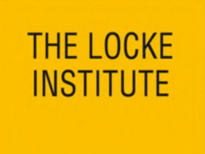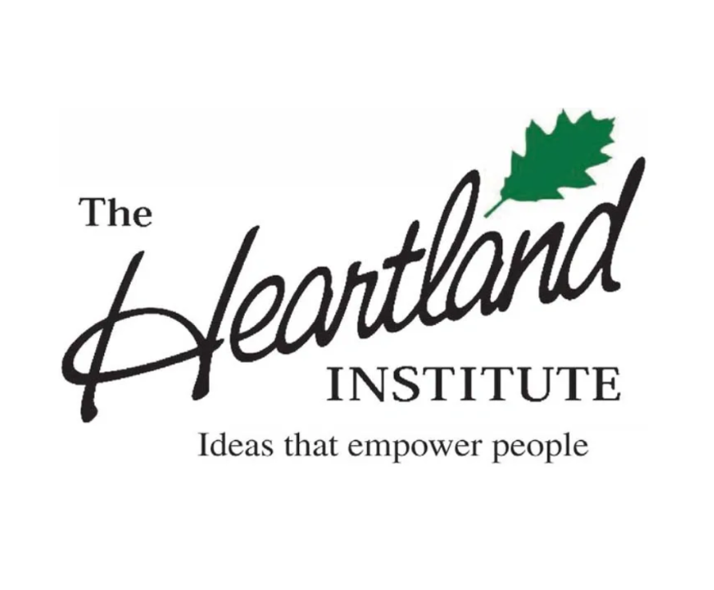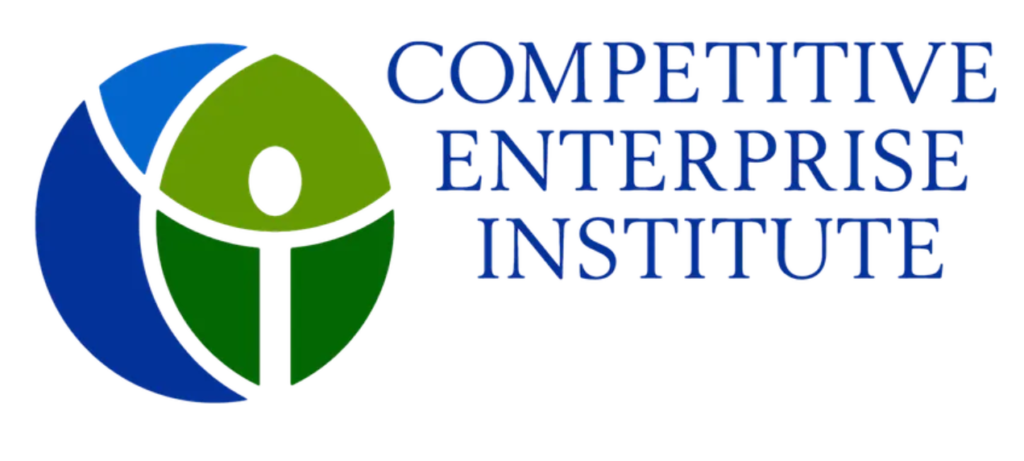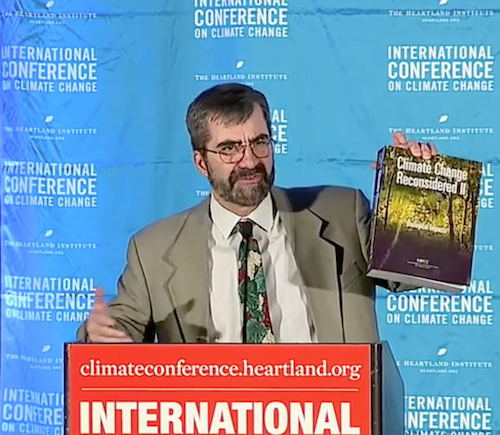Locke Institute
Background
The Locke Institute is a nonprofit 501(c)3 organization headquartered in Fairfax, Virginia. The Institute endorses the propositions of John Locke, the Enlightenment philosopher, that individuals are possessed of inalienable rights to life, liberty, and property; and that it is the principal function of the state to uphold these rights, since free individuals otherwise would not enter into political society.1“Board of Directors,” Locke Institute. Archived July 30, 2013. Archived .pdf on file at DeSmog. Archive URL: https://archive.ph/PEhz2
The Locke Institute, according to its original website, was founded in 1989 as an ”independent, non-partisan educational and research organization. Named for the philosopher and political theorist John Locke (1632-1704), the Institute ascribes to his theory that society is based on the law of nature and that the individual is the ultimate source of political sovereignty.2“Board of Directors,” Locke Institute. Archived July 30, 2013. Archived .pdf on file at DeSmog. Archive URL: https://archive.ph/PEhz2
An earlier domain name used by the Locke Foundation — thelockeinstitute.org — went on sale some time in 2015. The group now uses the domain name the-locke-institute.org.3“Thelockeinstitute.org,” Sedo’s Domain Parking. Archived September 1, 2014.
According to a 2007 Locke Institute publication titled “The Political Economy of Welfare Reform in the United States,” by Mary Reintsma, the Locke Foundation “commissions books, monographs and shorter studies involving substantive scholarship written for a wide audience, organizes major conferences on fundamental topics in political economy, and supports independent research.”4Mary Reinstma. The Political Economy of Welfare Reform in the United States, The Locke Institute. Edward Elgar Publishing, 2007. ISBN 978 1 84376 1134. Accessed at Google Books.
Stance on Climate Change
The Locke Institute does not appear to have taken an official position on climate change.
Gordon Tullock, who was a member of the Locke Institute’s board of directors as well as its academic advisory council,5Locke Institute,” SourceWatch, July 19, 2004 signed the 1997 “Economists’ Statement on Climate Change,”6Peter Passell. “Yawn. A global-warming alert. But this one has solutions,” New York Times, February 13, 1997. Archived .pdf on file at DeSmog. Archive URL: https://archive.ph/Eo6tm which stated, “We believe that global climate change carries with it significant environmental, economic, social and geopolitical risks, and that preventive steps are justified.”7(Press Release). “2,500 ECONOMISTS AGREE THAT COMBATING GLOBAL WARMING NEED NOT NECESSARILY HARM THE U.S. ECONOMY NOR LIVING STANDARDS,” Redefining Progress, March 29, 2011. Archived February 29, 2016. Archive URL: https://archive.ph/8MLA6 8“THE ECONOMISTS’ STATEMENT ON CLIMATE CHANGE,” Redefining Progress. Archived February 29, 2016. Archive URL: https://archive.ph/GsE1E
Funding
A 2007 Locke Institute publication titled The Political Economy of Welfare Reform in the United States, included the following statement regarding funding:
“In order to maintain independence, The Lock [sic] Institute accepts no government funding. Funding for the Institute is solicited from private foundations, corporations and individuals. In addition, the Institute raises funds from the sale of publications and from conference fees.”9Mary Reinstma. The Political Economy of Welfare Reform in the United States, The Locke Institute, p. ii. Edward Elgar Publishing, 2007. ISBN 978 1 84376 1134. Accessed at Google Books.
IRS Form 990 Filings
Key People
The following information is based on the Locke Institute’s website via the Internet Archive, as well as publicly available IRS Form 990 filings.
View the attached spreadsheet for additional information on the Locke Institute’s key people by year (.xlsx).
Actions
October 19, 2010
Charles Rowley blogged about a new Locke Institute book titled “Never Let A Good Crisis Go To Waste,” which he edited. The book included a section titled “Hot Air Creates Global Warming.”10Charles Rowley. “Never Let A Good Crisis Go To Waste,” Charles Rowley’s Blog, October 19, 2010. Archived December 14, 2011. Archived .pdf on file at DeSmog. Archive URL: https://archive.ph/NHrmh
2010
James T. Bennett, program director of the Locke Institute, authored a book titled “The Doomsday Lobby: Hype and Panic from Sputniks, Martians, and Marauding Meteors.”11James T. Bennett. “The Doomsday Lobby: Hype and Panic from Sputniks, Martians, and Marauding Meteors,” Springer Science + Business Media, 2010. Archived February 29, 2016. Archive URL: https://archive.ph/389df
According to the book’s description, “From the race-to-space in the 1950s to the current furor over global warming, James Bennett traces the subtle and not-so-subtle ways in which government has co-opted scientific research and reinforced a culture in which challengers to proscribed wisdom are frozen out.”12James T. Bennett. “The Doomsday Lobby: Hype and Panic from Sputniks, Martians, and Marauding Meteors ,” Copernicus, 2010. Accessed at Google Books.
In the acknowledgements (see below), Bennett wrote that his “research would not have been possible without the generous financial support of the Sunmark Foundation and help from the Locke Institute.”
Publications
The Locke Institute listed the following publications on its website as of June 2013:
John Locke Series13“The John Locke Series,” The Locke Institute. Archived June 19, 2013. Archive URL: https://archive.ph/RR5o3
- Charles K. Rowley (1992). The Right to Justice: The Political Economy of Legal Services in the United States. Edward Elgar Publishing.
- Charles K. Rowley (1993). Property Rights and the Limits of Democracy. Edward Elgar Publishing.
- Fred Foldvary (1994). Public Goods and Private Communities. Edward Elgar Publishing.
- William A. Niskanen (1994). Bureaucracy and Public Economics. Edward Elgar Publishing.
- Charles K. Rowley, Willem Thorbecke, & Richard E. Wagner (1995). Trade Protection in the United States. Edward Elgar Publishing.
- Charles K. Rowley (1997). The Political Economy of the Minimal State. Edward Elgar Publishing.
- Charles K. Rowley, ed. (1998). Classical Liberalism and Civil Society. Edward Elgar Publishing.
- Gordon Tullock (1998). On Voting. Edward Elgar Publishing.
- Jim F. Couch and William F. Shughart (1998). The Political Economy of the New Deal. Edward Elgar Publishing.
- Norman Barry, ed. (1998). Limited Government, Individual Liberty and the Rule of Law: The Selected Papers of Arthur Shenfield.
- William A. Niskanen, Jr. (1998). Policy Analysis and Public Choice. Edward Elgar Publishing.
- Wolfgang Kasper & Manfred Streit (1999). Institutional Economics: Social Order and Public Policy. Edward Elgar Publishing.
- Peter Moser (2000). The Political Economy of Democratic Institutions. Edward Elgar Publishing.
- Boudewijn Bouckaert and Annette Godart-van der Kroon (2000). Hayek Revisited. Edward Elgar Publishing.
- Ian Runge (2001). Capital and Uncertainty: The Capital Investment Process in a Market Economy. Edward Elgar Publishing.
- Pietro Navarra and Giuseppe Sobbrio (2001). Rules, Choice and Strategy: The Political Economy of Italian Electoral Reform by Ram Mudambi. Edward Elgar Publishing.
- Jennifer C. Martin-Das (2002). The European Monetary Union in a Public Choice Perspective. Edward Elgar Publishing.
- Ram Mudambi, Pietro Navarra and Giuseppe Sobbrio, eds. (2003). Economic Welfare, International Business and Global Institutional Change. Edward Elgar Publishing.
- William A. Niskanen (2003). Autocratic, Democratic, and Optimal Government: Fiscal Choices and Economic Outcomes. Edward Elgar Publishing.
- Gordon Tullock (2005). Public Goods, Redistribution and Rent Seeking. Edward Elgar Publishing.
- Francisco Parisi and Charles K. Rowley, eds. (2005).The Origins of Law and Economics: Essays by the Founding Fathers. Edward Elgar Publishing.
- Mary Reintsma (2007). The Political Economy of Welfare Reform in the United States. Edward Elgar Publishing.
- Ekaterina Brancato (2009). Markets versus Hierarchies: A Political Economy of Russia from the 10th Century to 2008. Edward Elgar Publishing.
Churchill Series14“The Churchill Series,” The Locke Institute. Archived June 19, 2013. Archive URL: https://archive.ph/lF3Rb
- Bernard H. Siegan (1992). Drafting a Constitution for a Nation or Republic Emerging into Freedom. The Locke Institute in co-operation with the Institute for Humane Studies.
- James T. Bennett and Thomas J. Lorenzo (1994). Unhealthy Charities: Hazardous to your Health and Wealth. Basic Books.
- Christopher Lingle (1995). Singapore’s Authoritarian Capitalism: Asian Values, Free Market Illusions, & Political Dependency. Locke Institute.
- James T. Bennett and Thomas J. Lorenzo (1997). CancerScam: The Diversion of Federal Cancer Funds to Politics. Routledge.
- James T. Bennett and Thomas J. DiLorenzo (2000). From Pathology to Politics: Public Health in America. Routledge.
- Amanda J. Owens (2002). The Crisis of the United States Common Law System.
Contact & Address
In December 2023, the Locke Institute’s website listed its email contact address as: [email protected].15“Contact Us,” The Locke Institute. Archived December 18, 2023. Archive URL: https://web.archive.org/web/20231218174213/https://the-locke-institute.org/contact-us/
In June 2009, the Locke Institute listed the following contact information:16“Contact,” The Locke Institute. Archived June 24, 2009. Archive URL: https://archive.ph/Zxiiu
5188 Dungannon Road
Fairfax, Virginia 22030
USA
703-934-6934
Fax: 703-352-6927
[email protected]Based on a Google Street View for this location at the time, it appeared to be a residential neighborhood. A property bearing this address was listed for sale as of February 2016, with an assessed value of $650,100.17“5188 Dungannon Road, Fairfax, VA 22030,” Homesnap. Archived February 28, 2016. Archive URL: https://archive.ph/hzgyD
The Locke Institute’s address, as of August 2007, was:18“Contact,” The Locke Institute. Archived August 28, 2007. Archive URL: https://archive.ph/3lmwG
4084 University Drive, Suite 103
Fairfax, Virginia 22030-6812 USA
(1) 703-934-6934
Fax: (1) 703-352-9747
[email protected]
Related Organizations
- Edward Elgar Publishing — “The Institute maintains a publishing relationship with Edward Elgar Publishing.”19Mary Reinstma. The Political Economy of Welfare Reform in the United States, The Locke Institute. Edward Elgar Publishing, 2007. ISBN 978 1 84376 1134. Accessed at Google Books.
Other Resources
- “Locke Institute,” SourceWatch.
- “Factsheet: The Locke Institute,” ExxonSecrets.
Resources
- 1“Board of Directors,” Locke Institute. Archived July 30, 2013. Archived .pdf on file at DeSmog. Archive URL: https://archive.ph/PEhz2
- 2“Board of Directors,” Locke Institute. Archived July 30, 2013. Archived .pdf on file at DeSmog. Archive URL: https://archive.ph/PEhz2
- 3“Thelockeinstitute.org,” Sedo’s Domain Parking. Archived September 1, 2014.
- 4Mary Reinstma. The Political Economy of Welfare Reform in the United States, The Locke Institute. Edward Elgar Publishing, 2007. ISBN 978 1 84376 1134. Accessed at Google Books.
- 5Locke Institute,” SourceWatch, July 19, 2004
- 6Peter Passell. “Yawn. A global-warming alert. But this one has solutions,” New York Times, February 13, 1997. Archived .pdf on file at DeSmog. Archive URL: https://archive.ph/Eo6tm
- 7(Press Release). “2,500 ECONOMISTS AGREE THAT COMBATING GLOBAL WARMING NEED NOT NECESSARILY HARM THE U.S. ECONOMY NOR LIVING STANDARDS,” Redefining Progress, March 29, 2011. Archived February 29, 2016. Archive URL: https://archive.ph/8MLA6
- 8“THE ECONOMISTS’ STATEMENT ON CLIMATE CHANGE,” Redefining Progress. Archived February 29, 2016. Archive URL: https://archive.ph/GsE1E
- 9Mary Reinstma. The Political Economy of Welfare Reform in the United States, The Locke Institute, p. ii. Edward Elgar Publishing, 2007. ISBN 978 1 84376 1134. Accessed at Google Books.
- 10Charles Rowley. “Never Let A Good Crisis Go To Waste,” Charles Rowley’s Blog, October 19, 2010. Archived December 14, 2011. Archived .pdf on file at DeSmog. Archive URL: https://archive.ph/NHrmh
- 11James T. Bennett. “The Doomsday Lobby: Hype and Panic from Sputniks, Martians, and Marauding Meteors,” Springer Science + Business Media, 2010. Archived February 29, 2016. Archive URL: https://archive.ph/389df
- 12James T. Bennett. “The Doomsday Lobby: Hype and Panic from Sputniks, Martians, and Marauding Meteors ,” Copernicus, 2010. Accessed at Google Books.
- 13“The John Locke Series,” The Locke Institute. Archived June 19, 2013. Archive URL: https://archive.ph/RR5o3
- 14“The Churchill Series,” The Locke Institute. Archived June 19, 2013. Archive URL: https://archive.ph/lF3Rb
- 15“Contact Us,” The Locke Institute. Archived December 18, 2023. Archive URL: https://web.archive.org/web/20231218174213/https://the-locke-institute.org/contact-us/
- 16“Contact,” The Locke Institute. Archived June 24, 2009. Archive URL: https://archive.ph/Zxiiu
- 17“5188 Dungannon Road, Fairfax, VA 22030,” Homesnap. Archived February 28, 2016. Archive URL: https://archive.ph/hzgyD
- 18“Contact,” The Locke Institute. Archived August 28, 2007. Archive URL: https://archive.ph/3lmwG
- 19Mary Reinstma. The Political Economy of Welfare Reform in the United States, The Locke Institute. Edward Elgar Publishing, 2007. ISBN 978 1 84376 1134. Accessed at Google Books.







